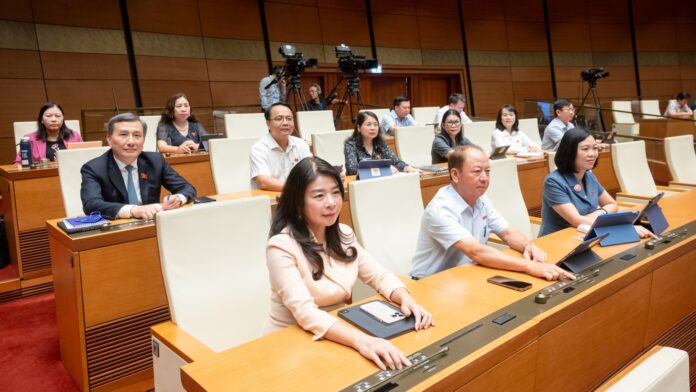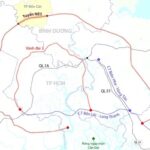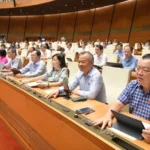
National Assembly deputies vote on laws at the 9th session. Photo: Pham Thang
The National Assembly will also vote on several other important laws and resolutions, including: Law on Teachers; Law on Employment (amended); Law amending and supplementing a number of articles of the Law on Advertising; Law amending and supplementing a number of articles of the Law on Enterprises; Law amending and supplementing a number of articles of the Law on Credit Institutions; Law amending and supplementing a number of articles of the Law on Energy Saving and Efficient Use; Law amending and supplementing a number of articles of the Law on Product and Goods Quality.
In addition, a discussion on socio-economic issues will take place during the sixth working week, from June 17th to the morning of June 18th. This content will be broadcast live for voters and the public to follow.
The National Assembly will also discuss in the assembly hall the transition to applying a number of specific mechanisms and policies that have been allowed by the National Assembly to be implemented in some localities after the reorganization of the apparatus and the expansion of administrative boundaries in accordance with the Party and State’s guidelines; Practicing thrift and anti-waste in 2024; Results of implementing the National Target Program on Gender Equality in 2024.
Notably, the sixth working week will also include an activity of questioning and answering inquiries. At this session, the Minister of Finance, Nguyen Van Thang, and the Minister of Education and Training, Nguyen Kim Son, will answer inquiries related to two fields: finance and education and training.
The inquiry and answer session will take place from June 19th to the morning of June 20th. According to the agenda, the Prime Minister (or a Deputy Prime Minister authorized by the Prime Minister) will report on related issues and answer inquiries of the National Assembly deputies. The sessions will be broadcast live for voters and the public to follow.
Furthermore, during the sixth working week, the National Assembly will discuss the following draft laws and resolutions: Law on Railways (amended); Law on Participation in United Nations Peacekeeping Forces; National Assembly Resolution on exemption and support of tuition fees for preschool children, primary and secondary school students, and students of general education programs in educational institutions within the national education system; National Assembly Resolution on universal preschool education for 3- to 5-year-old children; National Assembly Resolution on mechanisms for handling difficulties and problems due to legal regulations.
Discussions will be held on the following investment policies: Investment Project to build the Quy Nhon-Pleiku Expressway; Investment Project to build the Ring Road 4 of Ho Chi Minh City; Adjustment of the investment policy for the Investment Project to build the Bien Hoa-Vung Tau Expressway, Phase 1.
What Defines Digital Assets in the Newly Passed Law?
The legislature entrusts the government with the task of formulating detailed regulations pertaining to digital assets. These regulations are to be tailored to the practical needs and management requirements of diverse sectors and fields.
The Best Kept Secret: A Revelation for the Residents of Ho Chi Minh City, Dong Nai, and Tay Ninh
The Ho Chi Minh City Ring Road 4 Project is a significant national undertaking, with its construction spanning across Ho Chi Minh City, Dong Nai, and Tay Ninh. This ambitious project promises to be a pivotal infrastructure development, not just for the three provinces it directly connects but for the entire nation.
“Legislating Efficiency: The State Capital Management Law”
The Law on State Capital Management and Investment in Enterprises marks a significant step forward in enhancing the efficiency of capital management and utilization. This legislation is designed to foster greater transparency, autonomy, and accountability among businesses, ultimately contributing to their long-term success and sustainability.
“Lawmaker: Merging Provinces is Not Just an Addition of Land and Population, But a Multiplication of GDP”
On the morning of June 12th, the National Assembly officially passed a resolution to rearrange administrative units at the provincial level. As a result, the country will now consist of 34 provinces and cities, a significant reorganization that aims to streamline and enhance administrative efficiency.





















